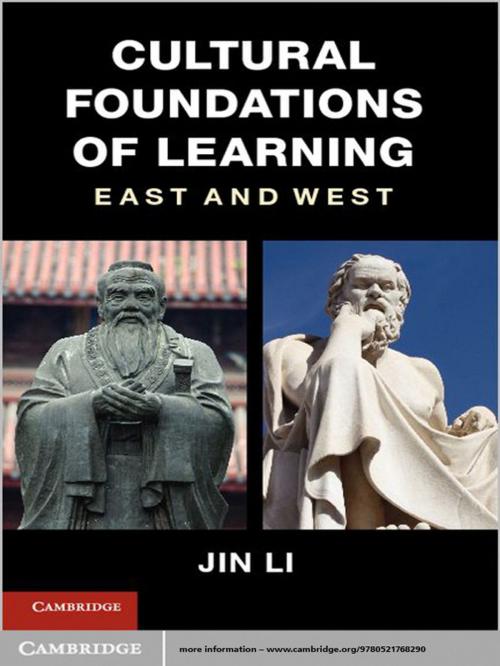Cultural Foundations of Learning
East and West
Nonfiction, Reference & Language, Education & Teaching, Health & Well Being, Psychology, Social & Cultural Studies, Social Science| Author: | Jin Li | ISBN: | 9781139334013 |
| Publisher: | Cambridge University Press | Publication: | March 26, 2012 |
| Imprint: | Cambridge University Press | Language: | English |
| Author: | Jin Li |
| ISBN: | 9781139334013 |
| Publisher: | Cambridge University Press |
| Publication: | March 26, 2012 |
| Imprint: | Cambridge University Press |
| Language: | English |
Western and East Asian people hold fundamentally different beliefs about learning that influence how they approach child rearing and education. Reviewing decades of research, Dr Jin Li presents an important conceptual distinction between the Western mind model and the East Asian virtue model of learning. The former aims to cultivate the mind to understand the world, whereas the latter prioritizes the self to be perfected morally and socially. Tracing the cultural origins of the two large intellectual traditions, Li details how each model manifests itself in the psychology of the learning process, learning affect, regard of one's learning peers, expression of what one knows and parents' guiding efforts. Despite today's accelerated cultural exchange, these learning models do not diminish but endure.
Western and East Asian people hold fundamentally different beliefs about learning that influence how they approach child rearing and education. Reviewing decades of research, Dr Jin Li presents an important conceptual distinction between the Western mind model and the East Asian virtue model of learning. The former aims to cultivate the mind to understand the world, whereas the latter prioritizes the self to be perfected morally and socially. Tracing the cultural origins of the two large intellectual traditions, Li details how each model manifests itself in the psychology of the learning process, learning affect, regard of one's learning peers, expression of what one knows and parents' guiding efforts. Despite today's accelerated cultural exchange, these learning models do not diminish but endure.















